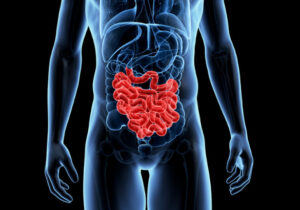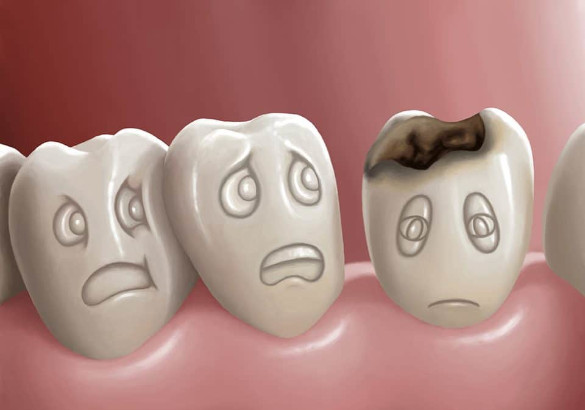Periodontal disease
Good general health, and good general nutrition, including smoking cessation are all important aspects of fighting periodontal disease. Specific nutrients that tend to be lacking in diseased tissue include:
- Vitamin C
- Vitamin D
- Coenzyme Q-10
- Folic Acid
- Mineral cofactors, trace elements
- Acid – Base balance, which controls proper mineral deposition
- Nitric oxide precursors, which also influence proper mineral deposition
Dental caries
Good general health and good general nutrition for the prevention of dental caries including:
Recognizing the systemic effect of cariogenic diets that are high in sugar and refined flour.
Controlling topical exposure to fermentable carbohydrates by curbing: prolonged sipping, snacking, and grazing habits (e.g., exercising the “twenty minute rule” of bacterial fermentation).
Maintaining an Acid – Base balance to control proper mineral deposition.
Practicing healthy mineral nutrition and absorption.
Including proper amounts of trace elements, such as: iodine, selenium, iron, copper, and manganese.
Incorporating proper amounts of vitamins D3 and K2
Amalgam replacement
Many practitioners recommend nutritional preparation prior to amalgam replacement. This becomes even more important for patients fighting illnesses, although some patients are sick because mercury toxicity prevents them from achieving metabolic homeostasis.
Goals for pre-replacement preparation:
- Improve gut health
- Up-regulate detox systems
 Improve gut health
Improve gut health
Improve gut health by managing food intolerance and introducing intestinal cleansers such as charcoal, clay, or specific mercury scavengers (Quicksilver IMD) to begin to bring down intestinal inflammation.
Note: leaky gut due to inflammation lets quantities of endotoxins into the blood stream, which, combined with mercury exposure, synergistically reduces kidney clearance of mercury.
Up-regulate detox Systems
Begin to up-regulate the detox systems by introducing vitamin C and glutathione. Glutathione can be raised by feeding precursors, like N-Acetyl cysteine or d.l-methionine, or directly with liposomal glutathione.
We follow the principles and protocols of the Institute of Functional Medicine to support a metabolic detoxification and reduce the body burden or toxic load of chemicals. The organs of detoxification are the liver, kidneys, large intestine, lymphatic system and sweat glands.
“Scientists estimate that the average adult carries within her or his body at least 700 toxins and that a new-born’s body can contain over 200 toxins”.
The goal of a clinically-directed metabolic detoxification protocol is to provide nutritional support for facilitating the pathways involved in the processing and excretion of toxins.”
The Institute of Functional Medicine
A whole body focus nutrition will enable the body to heal, excrete toxins and feel healthy.





 Improve gut health
Improve gut health